Didier Drogba’s 2011/12 campaign is fondly remembered for near-singlehandedly aiding Chelsea to their maiden Champions League crown, as opposed to scoring the winning goal in that year’s FA Cup final.
At the time — and perhaps even now — this was understandable. The Blues legend’s decisive quality in Europe helped the club to its first triumph in a competition Roman Abramovich desired, whereas the winning effort 14 days before their historic night in Munich was the West Londoners’ seventh in the game’s oldest cup competition.
That campaign for Drogba was largely forgettable anyway, although domestic cup success and a continental triumph mean that season is viewed differently. The forward netted five Premier League goals in 24 appearances, a beyond paltry return that explained the club’s eventual sixth-place finish, the lowest the club had ended in a league campaign under the Russian at the time.
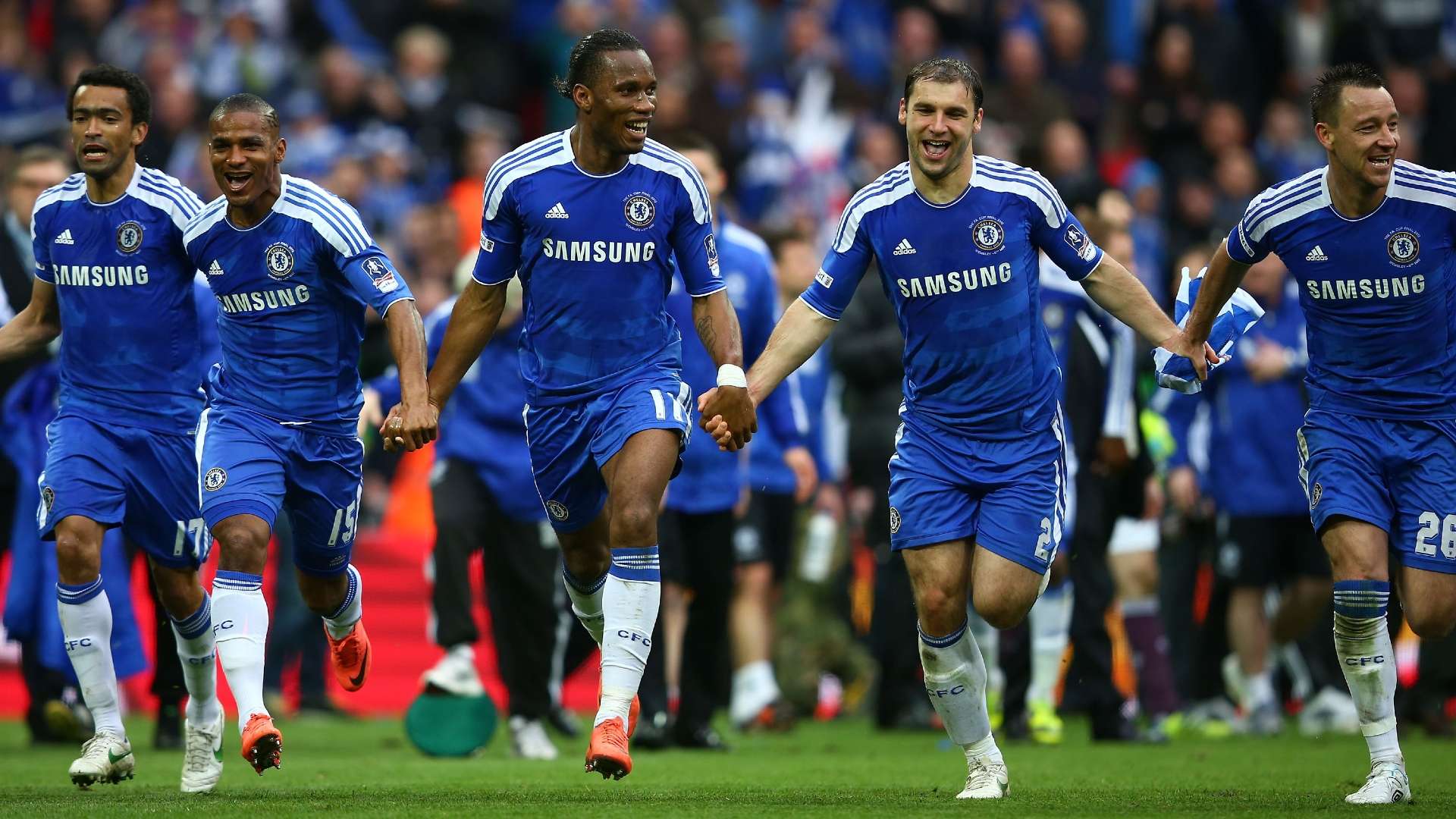 Getty
GettyHe had a more impressive scoring ratio in Europe and the FA Cup, netting six times in eight appearances in the former and twice in three appearances in the latter.
The aforementioned return largely depicts Drogba: a forward who struggled for consistency in league football but came up trumps in tight cup games. Indeed, those clutch performances defined the retired striker’s career in Chelsea blue.
The centre-forward started only twice in that FA Cup run and netted in both games, opening the scoring in the 5-1 semi-final defeat of cross-town rivals Tottenham Hotspur and scoring the winner when they beat Liverpool in the decider.
While both finalists had claimed 13 titles between them before that encounter in May 2012, neither had flourished in the league in that season, with the Reds finishing two places lower than the London side. The meeting represented Chelsea’s chance of moving level with Liverpool for FA Cup titles won.
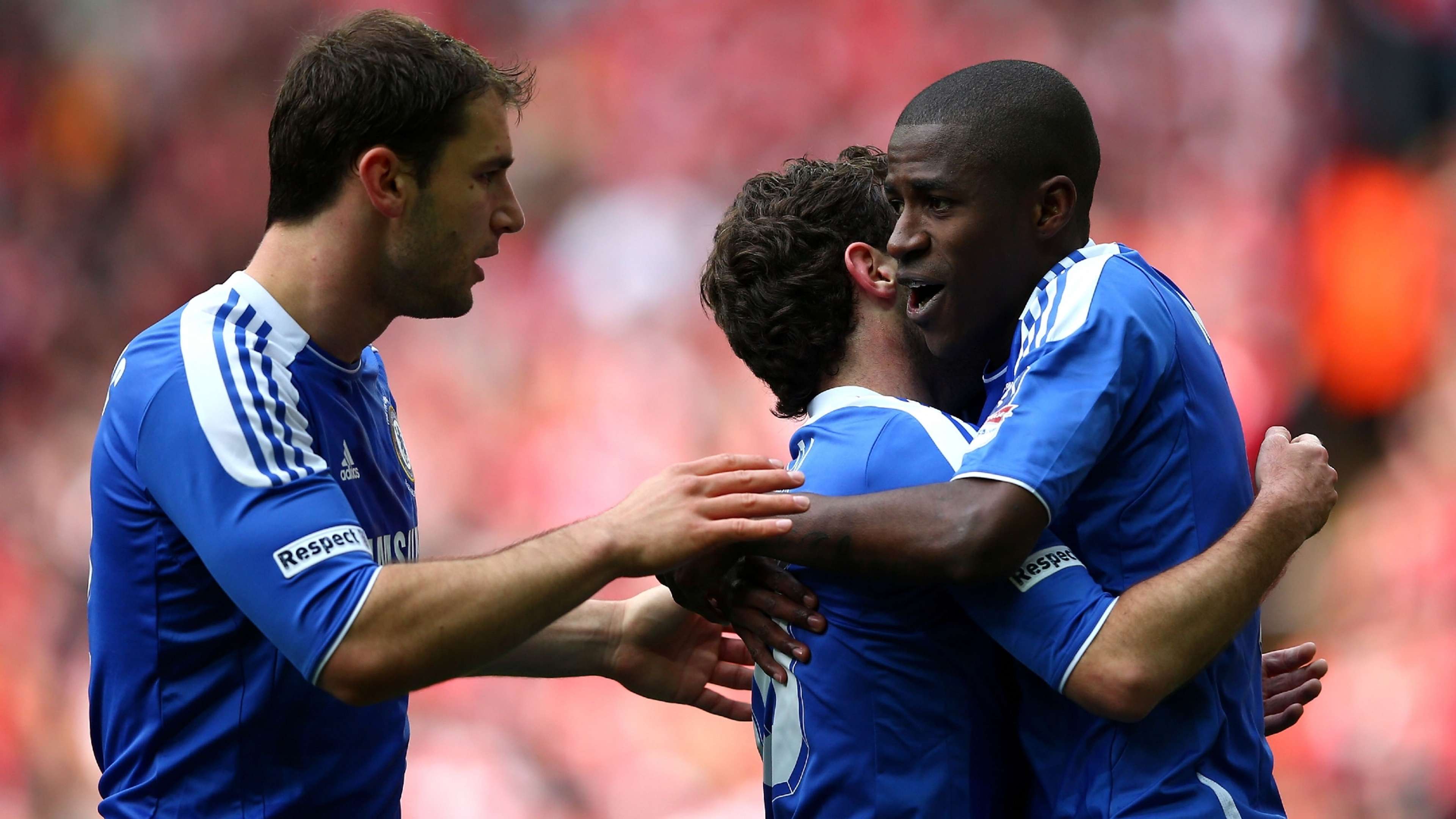 Getty
GettyRoberto Di Matteo’s team opened the scoring through Ramires after 11 minutes when Juan Mata released the Brazilian whose effort could not be stopped by Pepe Reina. Having seen Kenny Dalglish’s men turn the semi-final on its head — winning 2-1 against Everton despite falling behind before the half-hour mark — the Blues were aware they could take nothing for granted.
They knew a second goal would give them breathing room but nothing was forthcoming, as the Reds took control of the game after Ramires’ goal.
It stayed that way until half-time despite the pressure and, somewhat against the run of play, Di Matteo’s men got an all-important second seven minutes after the interlude.
Mikel John Obi had done well to evade Luis Suarez’s half-hearted attempt to close him down just inside Liverpool’s half and passed to Frank Lampard who was positioned centrally in a seemingly non-threatening position.
However, an ill-advised Jay Spearing decision to harry the Blues’ record scorer cost Liverpool. Lampard evaded the diminutive midfielder with ease and found Drogba, following the latter’s quick-witted movement to find half-a-yard by pulling away from Martin Skrtel.
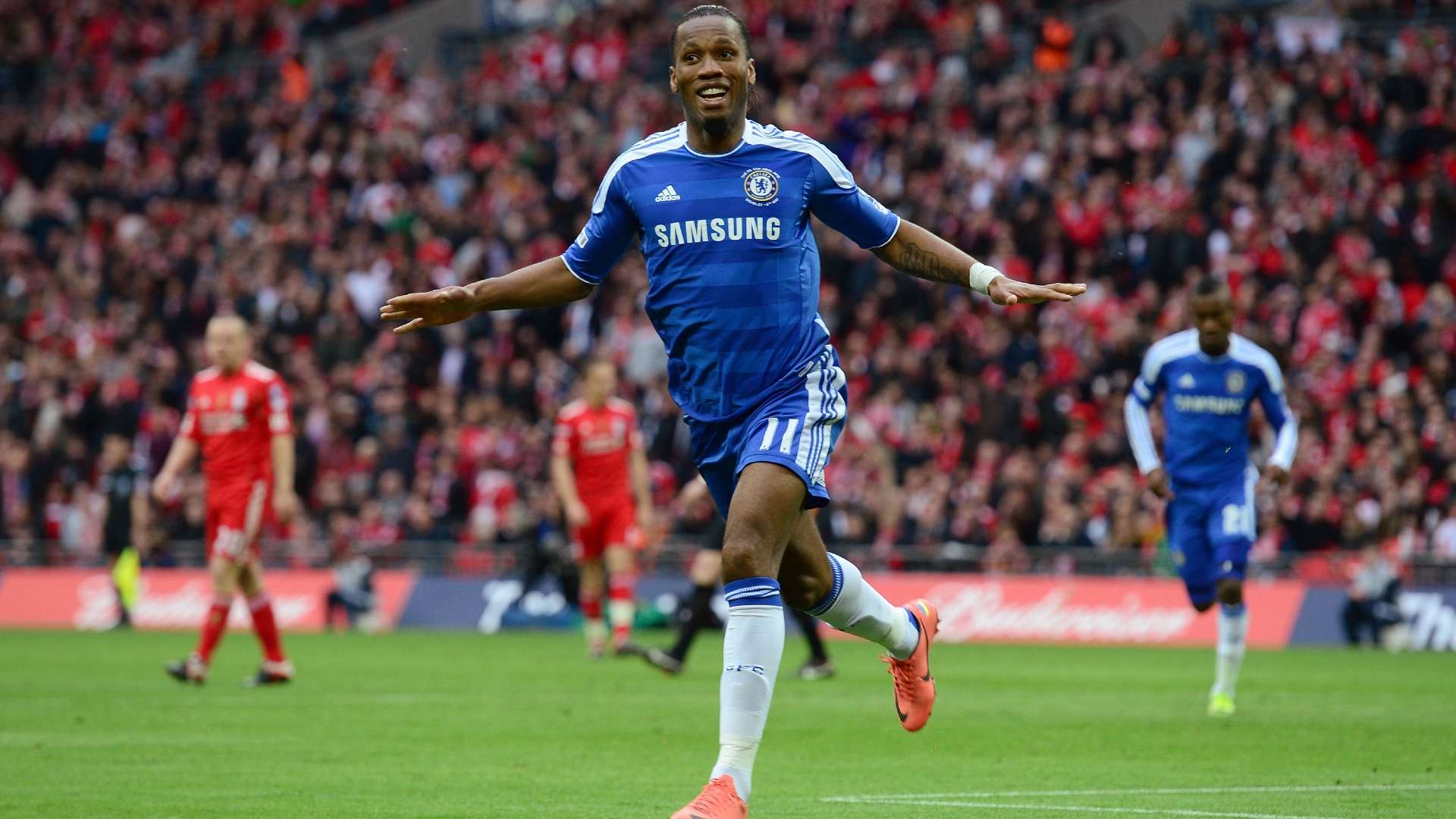 Getty
GettyWith the centre-back ostensibly watching the Ivorian closely and preventing him from chopping into his stronger right foot, the centre-forward sent a low shot with his weaker left foot between the defender’s legs that went into the bottom right corner.
Reina had no chance and the striker’s knee-slide celebration followed his fourth FA Cup final goal, the only player to achieve the feat of finding the back of the net in as many finals.
Despite substitute Andy Carroll halving the deficit 12 minutes later and subsequently forcing Petr Cech into an unbelievable stop, Chelsea held on for the win, equalling Liverpool’s haul.
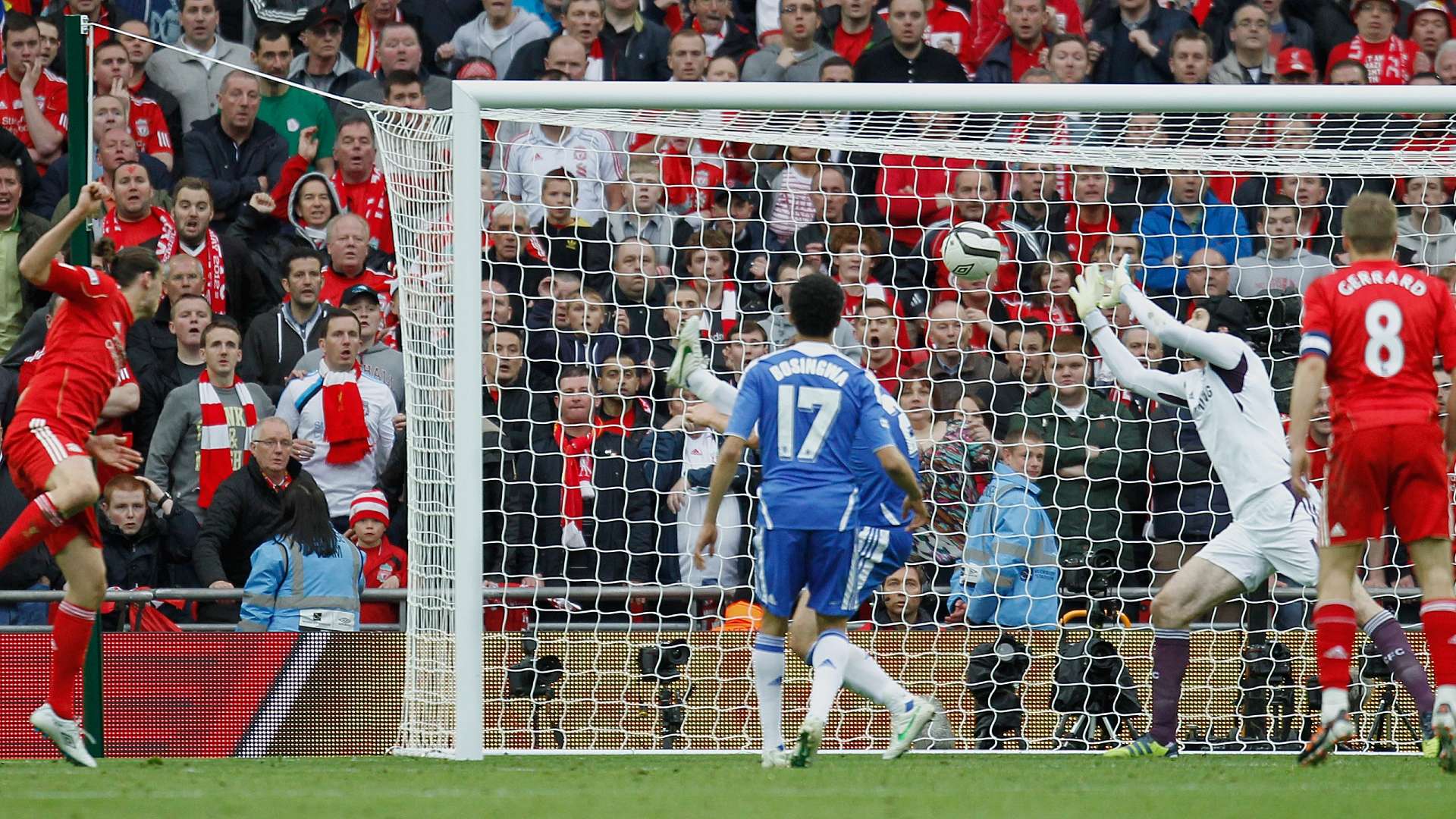 Getty
GettyThe West London side have since gone on to claim another title, defeating Manchester United in the 2018 final at the Home of Football.
10 years after Drogba netted to seal his status as the King of Wembley, both clubs rekindle their rivalry in the competition.
The Ivorian’s big boots have proven difficult to fill in recent years, with the West London club losing three of their last four finals at a ground they enjoyed playing at in the majority of the last decade.
Indeed, Blues supporters will hope someone in this current group steps up as they look for a ninth crown to banish the last two defeats at the Home of Football.
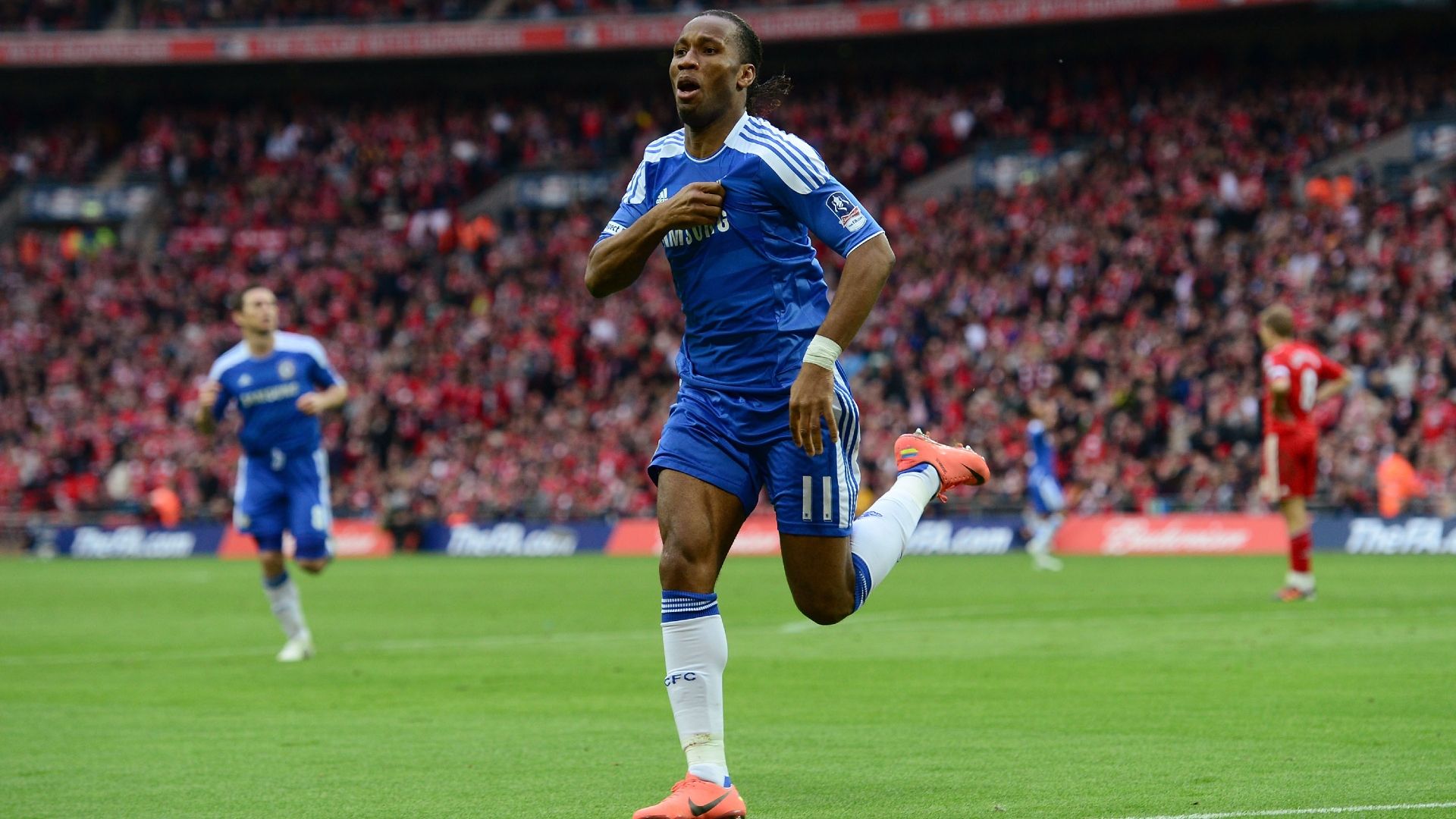-2.jpg?auto=webp&format=pjpg&width=3840&quality=60)



